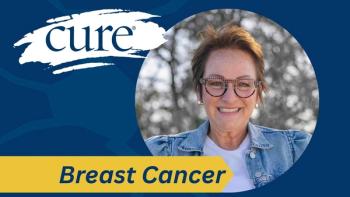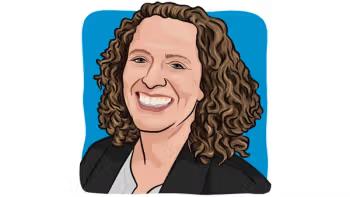
Expert Identifies Chemo Shortage as a 'Simple Tragedy of US Health System’
The ongoing chemotherapy shortage is preventing some clinical research from happening, resulting in both short- and long-term implications for cancer care.
As the platinum-based chemotherapy shortage continues affecting patients with cancer treated with cisplatin and carboplatin, cancer research may slow down or come to a halt due to its use of these standard of care as a comparison to novel agents in development, an expert said.
Clinical trials — which are the foundation of improving cancer care — will often be designed so that patients are assigned to one of two groups: the first will receive the current standard of care plus an investigational therapy, while the other group will receive the current standard of care alone or alongside a placebo.
The current standard of care is facing a shortage and becoming increasingly difficult to obtain not only for patients but also for clinical trials being conducted at cancer centers nationwide.
Chemo Shortage Impact on Clinical Trials
“(The chemotherapy shortage) will delay the completion of the trials. This will therefore also delay us generating the information that can help future patients receive even better care than we have today,” Dr. Walter Stadler, dean for clinical research, oncologist and professor who focuses on translational research in patients with genitourinary cancers at the University of Chicago, said in an interview with CURE®.
At least 174 of 608 (nearly 30%) ongoing cancer clinical trials being conducted by the National Cancer Institute (NCI) have been affected by the drug shortage, the NCI told CNN. Stadler also mentioned that this number does not include the “vastly larger group of trials that are sponsored by the pharmaceutical industry.”
“In clinical trials, we’re trying to improve the standard of care,” Stadler said. “So oftentimes, we conduct clinical trials where there might be a standard of care, for example, a platinum-based therapy and ovarian cancer, and we want to compare the standard platinum-based therapy to a therapy that includes the standard plus another drug. And so, therefore, enrolling in those trials, has the same implications as trying to treat those patients in terms of standard of care.”
When the platinum-based therapies are not available, the trials are interrupted.
Immediate Issues in Cancer Care
The chemotherapy shortage is not only affecting clinical trials but also patients being treated in a standard oncology setting.
“We are literally rationing drugs that are some of our cheapest and most effective drugs in a health care system that's one of the most wealthy in the world,” Stadler said.
“This is markedly impacting outcomes for patients’ ability to receive standard of care and ability to receive not only the most effective, but sometimes the least toxic therapy. So, in my mind, this is a simple tragedy of the U.S. health care system.”
A Look at the Root and the Future of the Chemotherapy Shortage
There is no one root cause of the chemotherapy shortage. Instead, experts believe that it could be a culmination of factors, including poor manufacturing plant quality, an aging population that is leading to a greater need for these drugs and an unreliable or unpredictable supply chain.
More CURE® coverage of the chemotherapy shortage:
Patients Respond to the Ongoing Chemo Drug Shortage Here’s How One Cancer Center Is Handling the Chemo Shortage Chemo Drug Shortage Requires a ‘Holistic Solution’ Expert Discusses Chemo Shortage: ‘Likely to Last’ 3 to 4 Months
Stadler explained that cisplatin and carboplatin are generic drugs, so they tend to have low profit margins for the companies manufacturing them, leading to outsourcing, often to single-source locations that are vulnerable to disruption, he said.
Looking ahead, Stadler mentioned proposals of making a chemotherapy reserve, similar to the Department of Energy’s strategic petroleum reserve (a large supply of crude oil to use in case of an emergency).
“I’m skeptical that we’re going to be able to change the market forces, per se. I’m rather hopeful, however, that this sort of strategic chemotherapy reserve for cheap, generic drugs that are necessary can be created,” Stadler said.
For more news on cancer updates, research and education, don’t forget to




